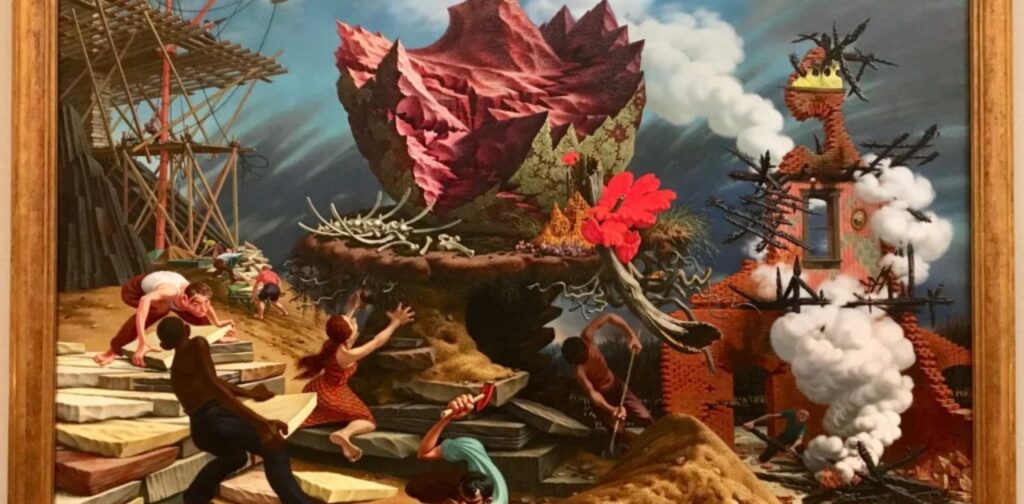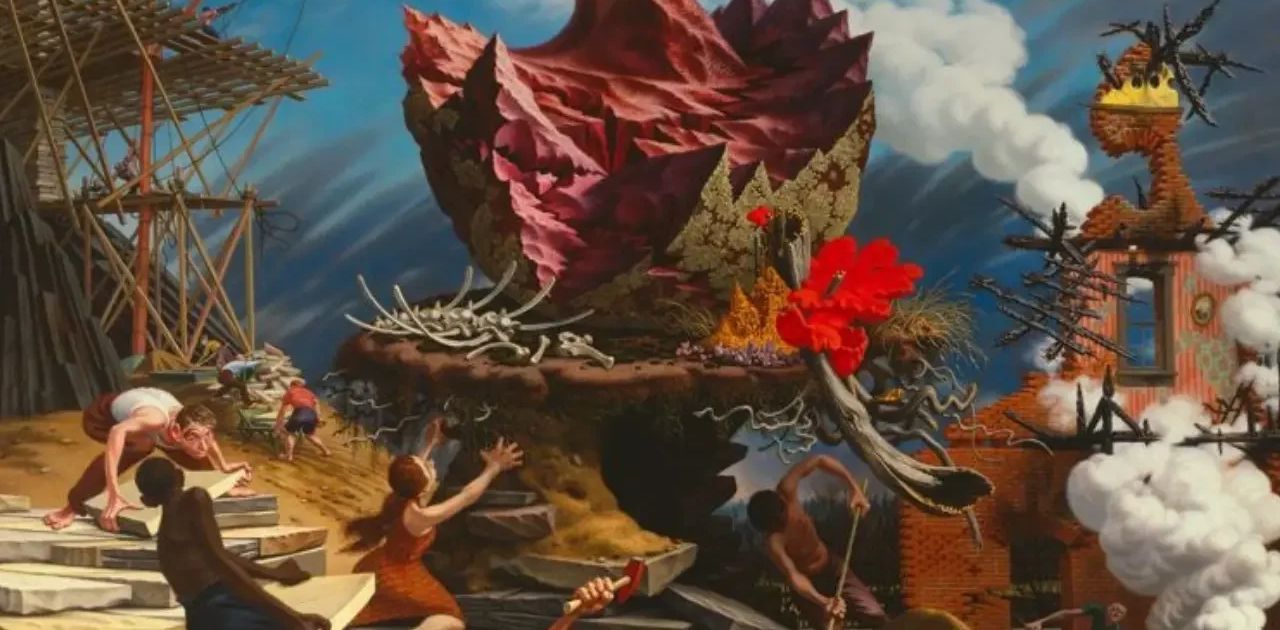In the landscape of cutting-edge literature, few works have captured the essence of human struggle and philosophical exploration quite like Peter Blome’s masterpiece, “The Rock.” T
his groundbreaking novel stands as a testament to the power of combining personal experience with deep philosophical inquiry, creating a narrative that resonates with readers across generations and cultural boundaries.
“Sometimes the heaviest burdens we carry become the foundations of our greatest strengths.” – Peter Blome
This profound statement encapsulates the essence of Blome’s work, which has transformed the landscape of contemporary literature through its unique blend of personal narrative and philosophical depth.
The Personal Journey of Peter Blome
Peter Blome’s journey toward creating “The Rock” began in his formative years, surrounded by a family of intellectuals who fostered his early love for philosophical exploration. Born in the rugged landscapes of northern Europe, young Blome developed a unique perspective that would later shape his approach to contemporary literature.
Key influences in Blome’s early life:
- Daily exposure to philosophical discussions at the family dinner table
- Extensive reading of classical literature in his father’s vast library
- Regular interactions with nature and wilderness during family expeditions
- Early writing experiments combining personal experience with philosophical thought
- Exposure to various artistic mediums through his mother’s work as a curator
The impact of these early experiences manifested in several ways:
- Development of a keen observational eye
- Understanding of natural symbolism
- Appreciation for philosophical discourse
- Recognition of the power of metaphor
- Integration of personal and universal experiences
The Influence of Tragedy
The transformation of personal loss into literary genius marks a crucial turning point in Blome’s journey. The death of his younger sister in his early adulthood became a catalyst for deeper existential questions that would later permeate “The Rock.”
Philosophical Inspirations: The Foundation of “The Rock”

Blome’s work deeply reflects his engagement with existentialist issues, particularly through:
Core Existentialist Themes in “The Rock”:
- The search for meaning in an apparently meaningless world
- Personal responsibility for creating purpose
- The role of choice in defining existence
- The relationship between freedom and accountability
- Individual responsibility for creating purpose
- Self-determination
- Active engagement with life’s challenges
- Personal agency in meaning-making
- The relationship between freedom and responsibility
- Consequences of choices
- Burden of free will
- Moral implications of actions
Stoic Philosophy’s Impact
The influence of stoic philosophy appears throughout “The Rock” in several key ways:
| Stoic Principle | Manifestation in “The Rock” | Example from Text |
| Acceptance | Protagonist’s relationship with inevitable challenges | Chapter 3’s mountain climb |
| Inner Peace | Character development through emotional control | Meditation scenes |
| Resilience | The recurring theme of perseverance | Storm survival sequence |
| Focus on Control | Emphasis on managing personal responses | Internal monologues |
Nature as Living Symbolism
The central symbolism of the rock represents multiple layers of meaning:
Physical Manifestations:
- Immovable obstacles
- Natural challenges
- Environmental forces
- Geological time scales
- Physical endurance tests
Psychological Representations:
- Mental barriers
- Emotional blockages
- Personal limitations
- Psychological resistance
- Internal struggles
Landscape as Character
The natural world in Blome’s work serves as more than backdrop—it becomes an active participant in the narrative of personal growth and transformation. Elements include:
- Weather Patterns
- Storms reflecting internal turmoil
- Sunshine representing breakthrough moments
- Wind symbolizing change
- Rain depicting cleansing and renewal
- Geographical Features
- Mountains as aspirational goals
- Valleys representing low points
- Rivers symbolizing life’s journey
- Forests depicting mystery and self-discovery
Cultural and Literary Heritage
Blome’s work draws from a rich tapestry of influences:
- Greek Mythology
- Sisyphus myth’s eternal struggle
- Promethean themes of defiance
- Hero’s journey archetypes
- Olympic gods’ challenges
- Norse Legends
- Tales of endurance
- Natural force personification
- Human-nature relationships
- Cosmic struggle concepts
Modern Literary Giants
- Kafka’s Influence
- Alienation themes
- Bureaucratic absurdity
- Individual vs. system
- Metamorphosis concepts
- Beckett’s Impact
- Minimalist style
- Existential waiting
- Character resilience
- Sparse dialogue technique
Social Commentary and Modern Relevance
“The Rock” tackles several modern human struggles:
Social Isolation in the Digital Age:
- Technological disconnection
- Virtual vs. real relationships
- Community breakdown
- Personal alienation
- Search for authentic connection
Economic Inequality Exploration:
- Class mobility barriers
- Systemic challenges
- Individual resilience
- Wealth distribution issues
- Social justice themes
The Human Condition: Universal Themes
The novel explores fundamental aspects of existence through:
Personal Growth Narratives:
- Character development arcs
- Psychological transformation
- Emotional maturation
- Spiritual awakening
- Social consciousness evolution
Triumph Over Adversity:
- Physical challenges
- Mental obstacles
- Emotional hurdles
- Social barriers
- Personal limitations
Legacy and Contemporary Impact

The impact of “The Rock” on contemporary literature continues to grow:
Influence on Modern Writing
The novel has inspired a new generation of writers exploring:
- Philosophical fiction approaches
- Nature-based metaphor usage
- Personal transformation narratives
- Existential themes in modern contexts
- Environmental consciousness in literature
Conclusion
Peter Blome’s “The Rock” stands as a testament to the power of combining personal experience, philosophical beliefs, and literary craftsmanship.
Its enduring influence on contemporary literature and thought demonstrates how deeply personal stories can illuminate universal truths about the human condition.
The novel continues to inspire readers and writers alike, proving that the intersection of personal experience and philosophical insight can create truly transformative literature.



